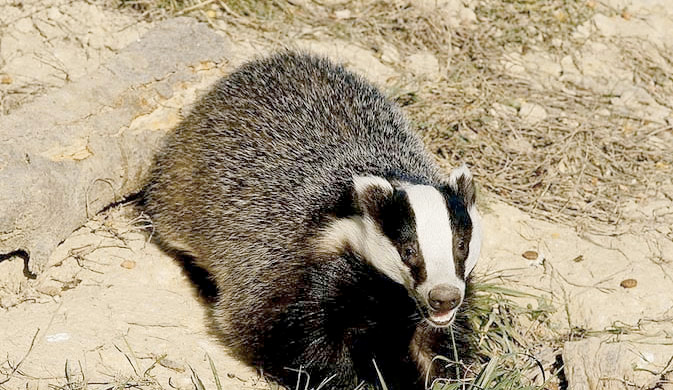
More than half of England could have 'Officially TB-Free' status two years ahead of the Government’s original timetable, which has been hailed a 'welcome boost' for beef and dairy farmers in those areas.
Defra figures show 10,886 badgers were put down in 10 zones across Cornwall, Devon, Dorset, Gloucestershire, Herefordshire and Somerset, in the three months from September 2016.
Environment Secretary Andrea Leadsom said on Friday that the Government was “taking strong action to deliver a long-term plan” to eradicate Bovine TB, which affects cattle and which the Government blames on badgers.
Proposals to extend badger culling beyond the four years originally planned were also published on Friday (16 December), as well as wider use of a more accurate blood test for TB in cattle to help prevent herds retaining infectious animals.
National Farmers Union (NFU) President Meurig Raymond said gaining 'Officially TB-Free' status for the north and east of England ahead of schedule shows that the Government’s comprehensive 25-year strategy is 'having an impact.'
“If we are to achieve what everybody ultimately wants – a TB free England – it is vital that all elements of this strategy are implemented in full in the areas of the country where they will have most impact.
'Safely, humanely and effectively'
The NFU thanked everyone involved for their 'hard work and dedication' which ensured this year’s culls were completed 'safely, humanely and effectively'.
Mr Raymond continued: “If culling is to have the maximum impact on disease it is vital that it takes place in as much of the area where bTB is rife as possible. We will continue to offer help, advice and support to farmers who want to apply for a cull licence in these areas and where culling will have a beneficial impact on disease control.
“Farmers continue to play their part in helping tackle this disease through cattle movement controls, cattle testing, improving biosecurity on farm, and by committing their own time, money and effort to helping control the disease reservoir in wildlife in as part of the Government’s disease control strategy. The Chief Vet has said that consideration must now be given to some form of badger control in areas that have completed an intensive four-year cull to prolong the disease control benefits. We will consult widely with our members before submitting our response to this proposal."
Animal charity Humane Society International reacted angrily to the badger cull figures, calling it politically-motivated ‘badgercide’. Claire Bass, Director for Humane Society International said it was a 'shocking and grim death toll for this supposedly protected species.'
Miss Bass said: “There is no evidence that shooting badgers reduces TB in cattle, in fact the vast majority of scientists agree that this approach actually increases the risk of spreading the disease. Shooting thousands of badgers, the majority of whom will not even have TB, is a costly distraction from the real solution to TB in cattle. The truth is, they could wipe out every badger in England, and farmers would still be dealing with TB in cattle: it’s a disease of cattle, primarily spread by cattle, and it’s cattle-focussed control measures that will stop it"
